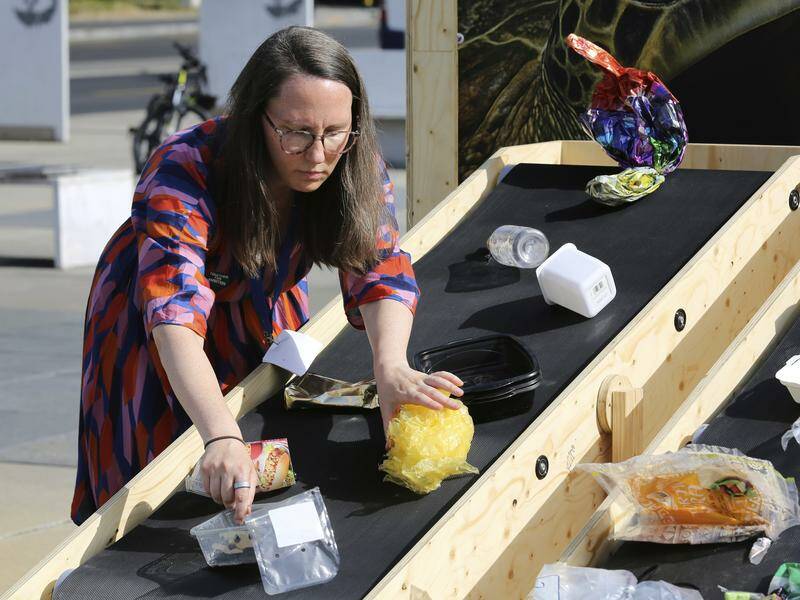
Negotiations for a global treaty aimed at tackling plastic pollution have reached an impasse after more than a week of discussions at the United Nations in Geneva. As of now, there is no agreement in sight, prompting the expected closing session to be postponed until Thursday evening, with the possibility of an overnight session.
A total of 180 countries recognize the severe threat posed by plastic pollution, which affects oceans, mountains, and human health. However, significant disagreements persist regarding the strategies to combat this pressing issue.
Competing Interests in Treaty Discussions
The High Ambition Coalition, which includes over 100 members such as the European Union and various nations from South America, Africa, and Asia, advocates for measures to limit plastic production to sustainable levels. Their proposals include phasing out single-use plastic items, like cups and cutlery, while promoting reusable options and establishing a circular economy for recycling and reuse of materials.
Conversely, a group of oil-producing nations, including Saudi Arabia, Iran, and Russia, identifies as the “like-minded group.” This coalition emphasizes limiting plastic waste instead of production, reflecting their economic interests as plastic is predominantly derived from oil products.
The UN’s mandate, established in 2022, aims to develop a comprehensive treaty addressing the entire life cycle of plastic, from production to waste management.
Contentions and Challenges Ahead
On Wednesday, Luis Vayas Valdivieso, the conference chair, introduced a compromise proposal. This document sparked outrage among numerous countries, as it was perceived to have stripped away ambitious targets, particularly concerning production limits outlined in Article 6. The dissatisfaction extended even to the oil-producing nations, with representatives from Saudi Arabia criticizing sections that suggested research into alternatives to plastic and liability for manufacturers.
Countries have been engaged in negotiations for three years, yet any potential agreement would require additional years for ratification and implementation. The urgency of the situation is underscored by the environmental impact of plastic contamination. It is known to harm marine life, pollute ecosystems, and threaten human health, with microplastics increasingly detected in human organs, including the brain.
Germany’s environment ministry reported that global plastic production surged from 51 million tonnes in the 1970s to approximately 367 million tonnes in 2020. If current trends persist, this figure could escalate to nearly 600 million tonnes by 2050. To date, about 8.3 billion tonnes of plastic have been produced, with a staggering 6.3 billion tonnes classified as waste, most of which ends up in landfills. Additionally, it is estimated that 152 million tonnes of plastic debris have accumulated in the world’s rivers and oceans.
The complexities and competing interests in these negotiations highlight the challenges of reaching a consensus on a global response to plastic pollution. As the discussions continue, the world watches closely, aware that decisive action is imperative to safeguard the environment and public health.






